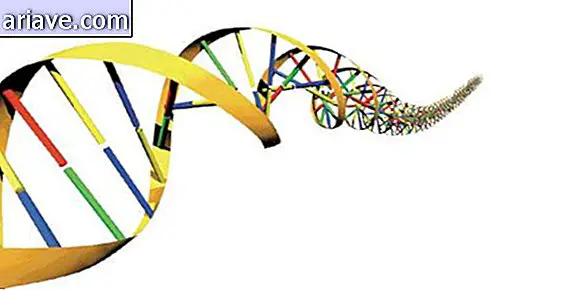5 words of science with fascinating origins that we use in everyday life
Science surrounds our lives, it goes from the television we turn on by remote control while we're lying on the couch to the rice and beans on our plate, which went through a long production process until it got there. Words created by scientists are also part of our everyday language, such as cancer and electricity. But have you ever thought about the origin of these terms?
Check out the curious emergence of these and other scientific words below:
Electricity

We can no longer live without electricity, from the light that illuminates our homes to the sockets that charge our cell phones. The American Benjamin Franklin is very famous for his experiments with electric charge flows in the 18th century, but the truth is that they arouse the curiosity of humans since antiquity.
Around 600 BC, the Greek philosopher Tales of Miletus made a series of observations by rubbing a piece of amber on a sliver of sheepskin. He realized that friction generated loads that attracted small objects by the amber itself and that rubbing the surfaces for a long time sparks. And what is the Greek word for amber? Elektron, who named the electricity.
Cell

The cells were discovered by physicist Robert Hooke in the 1660s. He first identified them when he observed a cork chip under a microscope and came across small structures that appeared to be surrounded by tiny walls.
In 1665 Hooke published a book comparing cork cells with the small rooms where the monks lived. He himself baptized the word, inspired by the Latin term cellula (small room).
Cancer

Have you ever wondered why cancer is as much the name of a disease as a constellation in the sky? It is not a mere coincidence. The word comes from the Greek karkinos, which means crab.
Just as the shape of the constellation resembles the crustacean, the Greek Hippocrates, considered the father of medicine, noticed the resemblance of some branched tumors under the skin of his deceased patients around 400 BC to the shape of the animal.
About 450 years later, the Greco-Roman doctor Celsus made the same analogy, but in Latin: he related the disease to the term carcinoma, which also means crab.
Planet

The stars move in the sky, but they are so far away from us that they seem fixed, always in the same formation in relation to each other. On the other hand, the planets, much closer to Earth, change their position in the sky much faster. For this reason, the Greeks named these celestial bodies as asters planeti, meaning wandering stars.
Galaxy

Galaxy comes from the Greek gala, which means milk. Yes, even in ancient Greece, astronomers compared the white line of the night sky made up of billions of stars - which we now call the Milky Way - with milk. Subsequently, the meaning of the word was expanded to describe other star systems.
***
Do you know the Mega Curioso newsletter? Weekly, we produce exclusive content for lovers of the biggest curiosities and bizarres of this big world! Register your email and do not miss this way to keep in touch!











